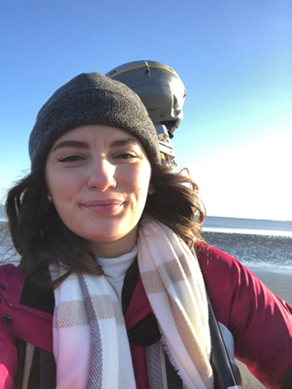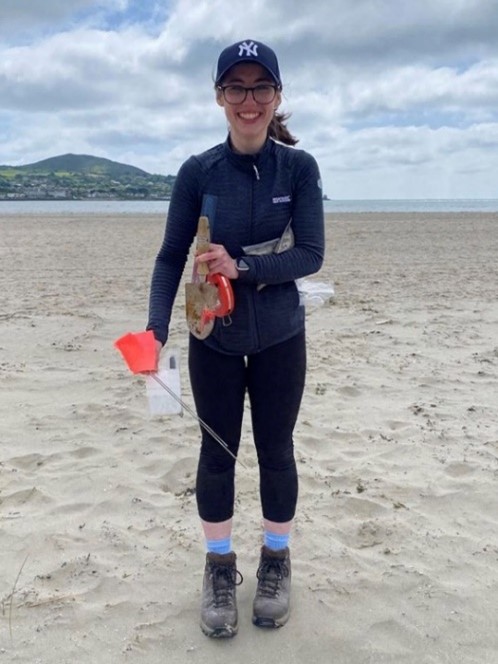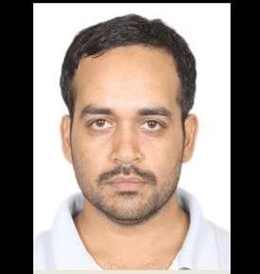Geomorphology Association of Ireland Spring 2024 newsletter
Spring 2024 newsletter of the Geomorphology Association of Ireland
Introduction
Dear Members,
Since the Geomorphology Association of Ireland (GAI) was relaunched in 2023 we have gathered 77 members from Ireland and overseas! We're always looking to welcome new members so please encourage your geomorphology colleagues and students to be a part of the community.
We have also introduced FREE membership for undergraduates - sign up on our website here: https://www.irishgeomorphology.ie/membership
A reminder of about membership benefits:
i) Access to the new GAI listserv (this will supersede the existing IGGy listserv at the end of September 2023).
ii) GAI newsletter, which highlights new geomorphology research from around Ireland.
iii) Eligibility for GAI funding awards.
iv) Discounted attendance rates for GAI workshops and conferences.
v) The community of the larger GAI research network!
vi) Access to online recordings of invited seminars.
vii) Access to teaching materials for undergraduate field, lab and lecture courses.
viii) Community resources such as online weekly writing sessions.
ix) Up to date notifications from the International Association of Geomorphology.
GAI webpage: https://www.irishgeomorphology.ie/
Twitter/X: https://twitter.com/IGeomorphology
Did you know?
We are delighted to announce that the 9th Geomorphology Association of Ireland workshop will be held on April 11 (11am - 5pm) in the Portershed at 15 Market Street, H91 TCX3, Galway city. The workshop title is: From land to sea: the role of Geomorphology in understanding and managing Ireland's landforms
The goal of the workshop is to bring together geomorphologists in Ireland with a view to sharing research and fostering interdisciplinary communication and collaboration. Although there will be a strong emphasis on presenting research, an important part of the day comprises a panel discussion to openly discuss the state of Geomorphology in Ireland today, and identify opportunities for Geomorphology the coming years as Ireland starts to implement new Climate- and Nature-focused policies that will impact how terrestrial and marine environments are managed.
The workshop is hosted jointly by the GAI, Ryan Institute, and the University of Galway.
Register to join the event here
Hope to see you there!
Recent news and events
Dr Eugene Farrell (University of Galway) was recently appointed Associate Editor at the journal Earth Surface Processes and Landforms. https://onlinelibrary.wiley.com/page/journal/10969837/homepage/editorialboard.html
Congratulations to Wahaj Habib and Charmaine Cruz who both recently passed their PhD vivas! Wahaj is now working on the EPA-funded ICONEEx project and Charmaine is working on the DAFM/EPA funded D-TECT project, both with Dr John Connolly (Trinity College Dublin).
Dr Eugene Farrell (University of Galway) is leading a new project 'Community-informed coastal management policy recommendations to build climate change resilience' for the Climate Change Advisory Council (CCAC). The project is engaging with >30 coastal communities to jointly inform the Government of their needs. This project was inspired by a guided field tour between Eugene and the Maharees Conservation Association leaders delivered to the CCAC and a member of the New Zealand Climate Change Commission. Subsequently, the CCAC secretariat wrote an opinion piece in the Irish Examiner. (https://www.irishexaminer.com/opinion/commentanalysis/arid-41108470.html)
In October, Dr Mary Bourke (Trinity College Dublin) was interviewed on The Journal's The Explainer podcast about the impact of Storm Babet and what can be done to manage flood risk in Ireland. Listen here: https://open.spotify.com/episode/5rHoSm4fAkkdwjjdeOkaBJ?si=cW8WxRPIQ9KRtlG5hqi5Dg&nd=1
Dr Eugene Farrell (University of Galway) was a co-author of Volume 3 'Being prepared for Ireland's future climate' of Ireland's Climate Change Assessment. "This is the first comprehensive and authoritative assessment of the state of knowledge of climate change in Ireland" (per EPA Ireland). https://www.epa.ie/our-services/monitoring--assessment/climate-change/irelands-climate-change-assessment-icca/
Feature article #1
River Channels and Floodplains, the importance of Physical Processes and Nature-based Solutions in the restoration of our river’s biodiversity.
Dr. Peter Glanville (PGeo. EurGeol)
SLR Environmental Consulting (Ireland) Ltd., Dundrum Business Park, Windy Arbour, Dublin 14
Contact: pglanville@slrconsulting.com
What are Nature-based Solutions?
The opportunities around Nature-based Solutions (NbS) have become a ‘hot’ topic in the past couple of years and NbS are generally touted as providing the solutions to many of the environmental problems we are facing particularly around the decline in biodiversity, flooding impacts, water quality and climate resilience; a veritable solution to all of our problems.
The aim of NbS is essentially to replicate natural processes to provide societal benefits to us. There are two general types of NbS; engineered NbS such as Sustainable Drainage Systems and Integrated Wetland Systems which are designed to mimic natural processes to control and treat water. The second type of NbS, which are discussed here, are around catchment scale processes to provide Ecosystem Services to us.
There are numerous definitions and infographics around NbS. However, the International Union for the Conservation of Nature has defined Nature Based Solutions as ‘Nature-based Solutions (NbS) are actions to address societal challenges through the protection, sustainable management and restoration of ecosystems, benefiting both biodiversity and human well-being’ (IUCN, 2020).
River intervention measures
In the past 130 years in Ireland changes in economic activity and the implementation of certain government policy measures have meant that our river channels and floodplains have become degraded in terms of their hydromorphology and also as a functioning ecosystem.
River intervention measures have controlled natural physical processes including flooding, erosion and deposition, in order to improve channel conveyance, reduce the frequency of flooding of land and control groundwater levels, particularly across the floodplains and wetlands adjacent to the river channels.
When the physical processes of our rivers are functioning correctly, river channels and floodplains provide NbS and vital Ecosystem Services for our society, including biodiversity, flood mitigation, water quality and climate resilience.
Rivers provide Nature-based Solutions to address biodiversity loss
The 2023 Citizens’ Assembly report provides a pathway for addressing biodiversity loss in Ireland. The report makes 14 recommendations in relation to freshwater environments (rivers and lakes) in Ireland. The government has undertaken a commitment to implement all of the recommendations in the report. In addition, the EU Nature Restoration Law, part of the EU Green Deal, provides specific targets for the restoration of ecosystems. The restoration targets are at least 20% of land and 20% of sea areas by 2030, and all ecosystems in need of restoration by 2050. EU countries must restore at least 30% of habitat types covered by the new law that are in poor condition to a good condition by 2030, increasing to 60% by 2040, and 90% by 2050.
In order to achieve these targets and address biodiversity loss we need to look carefully at restoring our rivers and recognise the vital Ecological Services that our rivers can provide to us as a society. However, it will only be possible to restore the river ecosystems loss if the physical catchment processes around flows, sediment erosion and deposition are addressed; it is these physical processes which form the basis of a functioning river and its ecosystem.
Rivers are a Nature-based Solution
A functioning river system based on natural catchment processes is a NbS. Rivers provide important Ecosystem Services to us, including biodiversity, flood mitigation, improved water quality and climate resilience.
There are multiple government agencies involved with our rivers, each with different remits and competing aims. The successful restoration of our rivers will require the coming together of all government agencies, along with landowners to restore our rivers. All of the scientific and technical skills required to restore our rivers and floodplains are already available to the state.
The Citizens’ Assembly report on Biodiversity Loss provides a pathway and the EU Nature Restoration Law the targets, for river restoration in Ireland.
References:
International Union for Conservation of Nature - Issues Brief: Ensuring Effective Nature-based Solutions (July, 2020)
Report of the Citizens’ Assembly on Biodiversity Loss (March 2023)
EU Nature Restoration Law www.europarl.europa.eu
Feature article #2
This edition we continue our introduction of the Trinity College Coastal Research Group: https://www.tcd.ie/geography/research/research-groups/coastal-research-group/

The Coastal Research Group at Trinity College, led by Professor Iris Möller, studies the many scientific and societal challenges emerging from the coming together of environmental and human drivers at the coast, particularly on shallow, low-lying coastal fringes. Currently, our geomorphological research is focused primarily on Dublin and the surrounding coast, with PhD research taking place at North Bull Island (Abbie Nugent), Malahide Estuary (Kevin O’Leary) and Turvey Nature Reserve (Juliet Rounce). In conjunction with this research, our group have been sampling and surveying at North Bull Island and Turvey Nature Reserve since September 2021 with the aim of better understanding the processes that shape the coastal morphology at these locations. We have installed water level sensors and sedimentation and erosion table (SET) stations on the north and south saltmarshes at Bull Island and on the managed and unmanaged saltmarshes at Turvey, which continue to generate valuable datasets of tidal water levels, marsh accretion, and elevation change data.
The Coastal Research Group, alongside other members of Trinity’s Geography Department and an interdisciplinary consortium of researchers from several international universities and NGOs, will also contribute to two EU Horizon projects, NATURESCAPES and REWRITE. Both projects kicked off at the end of 2023 and aim to address the biodiversity-climate crisis by understanding and employing Nature-based Solutions (NBS), such as rewilding, in a socially just manner. Our research group will contribute our expertise by (1) mapping and assessing NBS within and around Dublin Bay and determining the benefits that NBS in different configurations generate for climate, biodiversity, and communities, and (2) examining the ecological and social functioning of intertidal seascapes within Dublin Bay, such as at North Bull Island and Booterstown, and assessing how factors such as CO2 increase, temperature rise, sea level rise, extreme events, and biodiversity loss impact these seascapes at local and global scales.
Additionally, the Coastal Research Group is involved in Trinity’s Life in the Currents (LIC) project, funded through Trinity’s Prendergast Challenge Awards. The research focuses on a novel investigation into the role of naturally driven variability in the historical and contemporary exploitation of marine life in the Northeast Atlantic Ocean. The project will assess the impacts of natural and anthropogenically driven climatic and oceanic variability on marine ecosystems and the effects of these oceanic changes on terrestrial life and human societies.
In the summer 2023 newsletter we introduced two members in detail, Prof. Iris Möller and PhD candidate Juliet Rounce. This time we introduce Abbie Nugent, Kevin O'Leary and Jenny Clarke in the Member Profiles section below.
Member profiles
Abbie Nugent

Hi! My name is Abbie Nugent, and I’m a 3rd year PhD student in the Coastal Research Group at Trinity College under the supervision of Prof Iris Möller. My research looks at different methods used for modelling coastal change across a range of different spatial and temporal scales. I am currently using statistical, data-driven, and process-based models on my field site of North Bull Island to try and get a holistic understanding of how the island may change in the future under a changing climate.
Before my PhD, I completed an undergraduate degree in Geography and an MSc in Climate Change at Maynooth University. During my masters, I developed an interest in hydrological and climate models, which has helped me with developing a novel model framework of coastal change models for my PhD research. During my PhD, I have had the opportunity to partake in many conferences and community engagement events, speaking about my research on the coast and climate change. In October 2023, I had the opportunity to go to Bali as a youth delegate, joining over 20 other delegates from island and archipelagic nations to draft the 1st youth declaration for the AIS forum’s historic 1st high-level meeting.
To contact Abbie: nugentab@tcd.ie
Kevin O'Leary

Hi! My name is Kevin O’Leary, and I am a 1st year PhD student with the Coastal Research Group at Trinity under the supervision of Professor Iris Möller. My project entitled, ‘Analysis of Seagrass-Saltmarsh interactions in a connected Coastal Seascape’ is supported by a Trinity Research Doctorate Award.
Intertidal seagrass beds and saltmarsh ecosystems represent some of Ireland’s most valuable natural ecosystems, due to their roles in coastal defence, food provision for fisheries, and carbon sequestration. They also provide habitat for many of Ireland’s protected species, including migratory bird species. While both environments are found in the intertidal zone, little is known of the interactions and exchanges between these systems, and how they may influence the functions and resilience of these environments when they exist concurrently.
My project aims to identify and quantify the interactions between seagrass and saltmarsh systems to further our understanding of their joint development and response to changing environmental drivers, supporting a management approach which considers intertidal seagrass-saltmarsh systems as a connected seascape. Through literature and archival review, and a field study at the Malahide Estuary, Dublin, this project will look at the ecological and hydrodynamic exchanges between these systems, as well as their joint response to external hydrometeorological drivers.
To contact Kevin: keoleary@tcd.ie
Jenny Clarke

Hi! My name is Jenny Clarke, and I’m the research assistant with Professor Iris Möller’s Coastal Research Group at Trinity. Currently, I’m assisting with Trinity’s role in two new EU HORIZON projects, NATURESCAPES and REWRITE. As part of these projects, we will assess the ability of coastal landforms and intertidal ecosystems in Dublin Bay to act as nature-based coastal protection and examine the impacts of rewilding intertidal ecosystems on biodiversity and society.
Prior to beginning this role, I graduated with a BA in Geography and Geoscience from Trinity in June 2022 and an MSc in Environmental Science in November 2023. I’m interested in physical geography, particularly coastal processes, geomorphology, climate change, and GIS. My undergraduate thesis focused on assessing potential sediment sources for Martian aeolian dunes, and while my master’s thesis also focused on aeolian processes and the formation of aeolian dunes, it was based a little closer to home, on North Bull Island.
To contact Jenny: clarkj18@tcd.ie
Below is another member profile, this time from one of our international members:
Neelratan Singh

Neelratan Singh is a researcher in CSIR Central Institute of Mining & Fuel Research, Nagpur India. He is involved in Engineering Geology & Geomorphology and Geotechnical Investigations for mines and slopes and is currently working in the NW Himalaya (Ladakh, Himachal Pradesh and Uttrakhand).
He also focuses on climate and tectonic controls on the evolution of landscapes in Nubra & Shyok Valley (Ladakh Himalaya). The research area has developed the massive topography, tectonically active and climatically controlled regions, which provide unique opportunity to study earth surface processes responsible for the origin of depositional landforms in a high-altitude cold desert region.
Neelratan is hoping to connect with Irish geomorphologists to share knowledge and even collaborate on projects together.
To contact Neelratan: neelratan.geology@gmail.com
Recent publications
Here are a some examples of recent publications from GAI members. We'd love to showcase your work so if you have a publication to add to the next edition, please email us at iGeomorphology@gmail.com
W Habib, R Ingle, M Saunders, J Connolly (2024). Quantifying peatland land use and CO2 emissions in Irish raised bogs: mapping insights using Sentinel-2 data and Google Earth Engine. Scientific Reports 14(1), 1171.
C Cruz, J O’Connell, K McGuinness, JR Martin, PM Perrin, J Connolly (2023). Assessing the effectiveness of UAV data for accurate coastal dune habitat mapping. European Journal of Remote Sensing 56(1).
Fun from the field!
3rd year students from TCD during their fieldtrip to Wicklow learning peat depth acquisition - hopefully there was time for a warm cuppa afterwards!

Get in touch
To join the GAI or contribute to the newsletter please contact the GAI committee: iGeomorphology@gmail.com
We welcome submissions for all sections of the newsletter, including job advertisements and grant and conference announcements. Don’t forget you can also email the GAI community any time using the listserv, or by emailing us to send out on your behalf. We'd love to hear from you!
Best wishes to everyone for a fabulous coming summer, 'til next time!
Kate de Smeth (Newsletter Editor), on behalf of the GAI Committee.